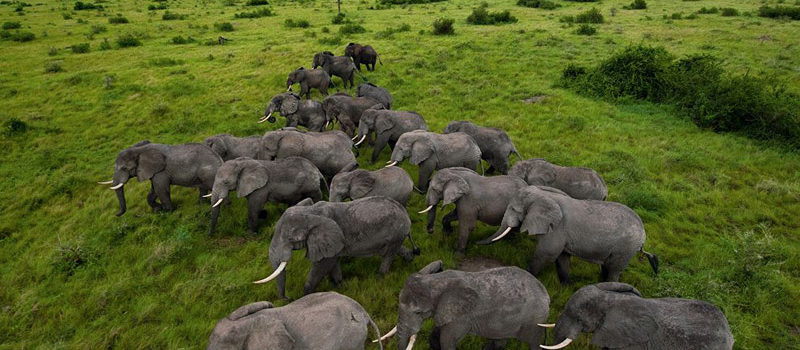The problem of elephant poaching requires little introduction. Across Africa and Asia, thousands of Elephants are killed for ivory each year, with some conservationists estimating that the deaths by hunting per year could be as high as 20,000. However, even those statistics are down from the 100,000 elephants reportedly killed between 2010 and 2012. With these extreme numbers, some people are left wondering whether or not there is a solution to the rampant poaching of these animals.
In the United States, state laws regulate when and under what circumstances you can hunt many game species, allowing for a natural repopulation of species in the area. While there are laws concerning hunting and especially ivory in Africa, due to high poverty and little oversight, bribery and corruption of officials are exceedingly common. With that in mind, many governments are left helpless to stop the poaching and illegal trade, as laws passed go virtually unacknowledged by both officials and the public.
There are potential solutions to poaching in Africa, which are not often implicated. While there are many controversial opinions on the issue of ending poaching, there may be more solutions than meets the eye.
-
Increased Protection. While this one is a fairly basic solution, there are many different ways of implementing it. Some park protection agencies in Africa use drones to keep watch at night, while others have sought out military tactics in order to stop black market poachers. In any case, stepping up security is a popular choice amongst African governments in the fight against poaching.
-
Communal Conservancies. Despite global trends, Namibia has done something extraordinary. Between the years of 2002 and 2013, the elephant population has grown from 9,600 to 16,000. How? The government of Namibia has policies in action where local communities can establish wildlife tourism, and where communities can keep vast amounts of the revenue made. In this way, many of Namibia’s rural residents are incentivized to make sure that the Elephant population is maintained and safe.
-
Legalize Ivory Trade. No, you heard that one right. While it may seem counter-intuitive, many people believe that by legalizing the trade of tusks, many of the reckless crimes and actions committed by criminal hunters in the black market would come more effectively under regulation. While it’s a controversial opinion to many, it may open up the market to better oversight and a more responsible harvesting of ivory.
If this post has encouraged you to help the elephants, donations are a great way to get involved. The African Wildlife Foundation is a great group which funds programs to help stop the poaching of elephants and violation of African conservancies. While poaching and ivory harvest solutions are far from black and white, seeking out, implementing, and studying the effects of different solutions can forge a better future for our world.

